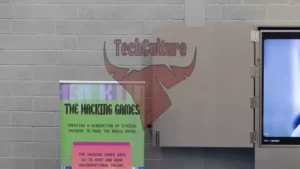Dockworkers’ Strike Grips U.S. Ports as Biden Resists Taft-Hartley Intervention
A widespread dockworkers’ strike has paralyzed 36 U.S. ports along the East Coast and the Gulf of Mexico, prompting manufacturers and retailers to urge President Joe Biden to invoke the Taft-Hartley Act. Despite mounting pressure, the President has maintained his stance against intervention in the labor dispute.
The Taft-Hartley Act, officially known as the Labor Management Relations Act of 1947, was introduced by Senator Robert Taft and Representative Fred Hartley Jr. in the aftermath of World War II. The legislation aimed to curtail union power following a series of disruptive strikes in 1945-1946. Despite opposition from President Harry Truman, Congress overrode his veto to enact the law.
Key provisions of the Taft-Hartley Act grant the President authority to intervene in strikes that threaten national health or safety. The law also bans “closed shops” and secondary boycotts, while requiring union leaders to disavow Communist Party support.
Under the Act, the President can appoint a board of inquiry and seek court injunctions to halt strikes. This process typically involves an 80-day cooling-off period, during which workers must return to their jobs. However, the law cannot force either party to accept a contract.
Historically, presidents have invoked the Taft-Hartley Act in various labor disputes, with mixed results. A notable example occurred in 2002 when President George W. Bush successfully used the law to end a West Coast port lockout.
President Biden, however, has refused to utilize the Taft-Hartley Act in the current strike, despite its impact on emergency relief efforts for Hurricane Helene. The President has emphasized the need for negotiation, pointing to port companies’ profits as a factor in the ongoing dispute.
The strike has significant political and economic implications. Private companies operate many U.S. ports, while labor unions generally oppose Taft-Hartley injunctions. Vice President Kamala Harris, known for her reliance on organized labor support, may face political challenges if the strike persists.
As the standoff continues, experts warn of potential consequences for upcoming elections and voter turnout if consumers begin to feel the economic impact of the port closures. The Biden administration’s handling of this labor dispute could prove crucial in shaping public opinion and political outcomes soon.





